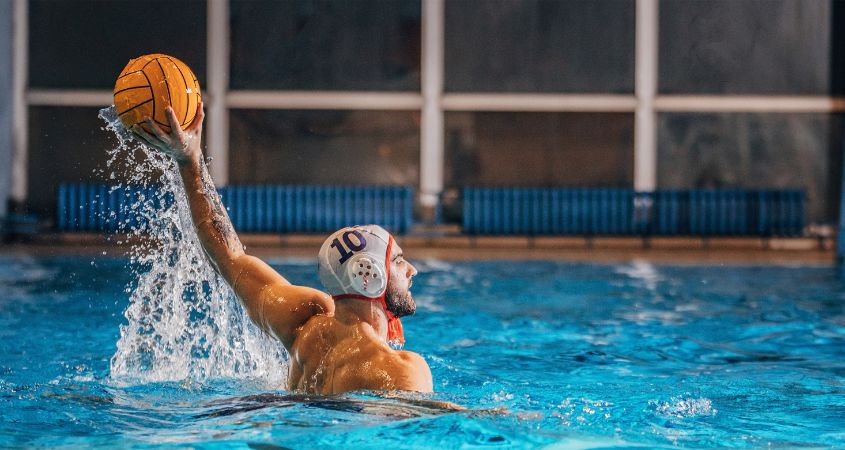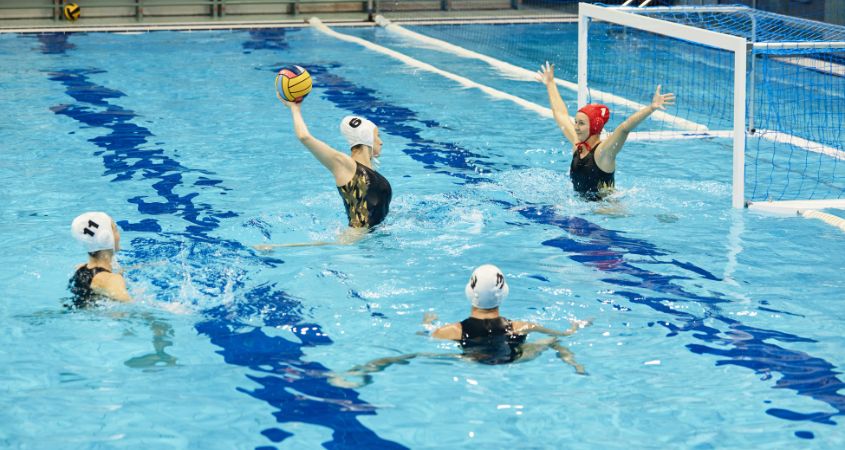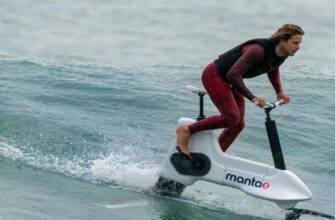Water polo has a reputation for being one of the most difficult sports; what, then, are its most demanding elements? On initial impression, it may appear to be simply swimming and handball in a swimming pool. Still, there is so much more to that.

Like any other sport, water polo is a global sport that stresses an athlete’s physical and psychological factors. It is high time we explain how water polo is such an arduous sport, how this sport is different from other sports, and what the reasons for such differences are.
Physique Requirements of Water Polo
This sport is among the hardest when it comes to strain because players are always swimming. They swim without stopping, stay buoyant in water, or do short bursts of intense exercise.
- In contrast to swimming, where one uses the walls to dig in and propel oneself, water polo players are not allowed such comforts and must abide in deep water during the entire match and do a skill called an eggbeater kick, which propels them above the surface without crashing down. This part of the game needs a lot of power and stamina in the legs, and even the best athletes who play professionally find it hard to sustain themselves during the game.
- Moreover, it is a contact sport and thus is also a challenge in terms of physical strength and endurance. Players often endure tussles with each other, trying to seize positions; they can wrestle underwater, and they are defended against by other players while they are attempting to shoot or pass the ball.
All this while breathing, keeping balance, and keeping their heads above water. It is absolutely justified that water polo is considered a sport that requires a lot of physical effort.
Mental Toughness and Strategy
As much as it is physically demanding, water polo is also mentally complicated.
- Players must have good mental toughness to be able to cope with the pressure and tempo of the game. This sport involves engaging in activities that require many quick decisions due to time constraints.
- The player could have a ball and, in splits of seconds, can depth on pass, shot, or retention of the ball. It is important to appreciate how the game is played and how the opposing players are likely to move in order to further the game.
- It is also important to mention that there are teamwork functions in the water polo match. Players need to speak with their teammates, plan a strategy for the game, and keep their eyes on the action within the game all the time. This aspect of the game plays an important function in adding another emphasis to the game, as a physical one is complicated by the mental aspect of the game, too.
Skill Requirements
Winning in this game requires players to employ a breathtaking combination of skills, for instance:
- Swim competence: Constantly engaging in forward movement, active vertical position, and sculling to ensure one’s speed and position.
- Ball handling: Good grip and reasonable direction for throwing and shooting the ball while submerged in water.
- Stamina: Continuous availability of energy to perform energy-sapping activities for long periods of time.
- Coordination: Protection under bulk activity, throwing, and catching in separate but interrelated motions.
- Speed and mange: Active maneuvers are used to set up offensive and defensive moves against the opponents.
These skills are learned through rehearsal and commitment because each part of the body in the water is totally different from on the ground.
Degree of Hard Work Reflected in Games
The sport itself demands a very high degree of physical activity, with players moving about in the field of play, maneuvering for possession of the ball and attempting to put it into the goal.
- There are constant sprints and water treading movements which require the players to be physically fit.
- There is no such luxury in most of the sports where there is a break in the action. Even when not participating in plays, players have to swim around so as not to drown.
- Water polo is also a contact sport that employs moves like grappling with players of competitors underwater out of the view of the referees. And, of course, they like to grab, pull, and push, which makes it hard even at times, causing injuries.
The fast-motion, high-impact way of playing the sport explains why there is a high tendency to injure players if they do not protect themselves.
Comparison with Other Sports
When it comes to water polo, it is understandable why it is regarded as one of the hardest sports. Unlike most of the games that are played on land, where players are awarded a recuperating time between plays and can always find a stable ground to tussle on, the water polo player is in constant warfare against the water. The paradigm within the case differs – there is not even a space on the concrete to recline, and each action brings about more exertion.
Water polo is often viewed in the manner of soccer or basketball in its physicality and movements but under a more difficult condition of being submerged in water. The amount of contact is comparable to the likes of rugby or American soccer; only this is executed on water, hence an added complexity.
Water polo is a perfect fusion of ‘long sprinting’ while being pushed, using weights to consume muscles, and strategic thinking in the battle against water.
The Importance of Sports Insurance
Given the significant physical and mental strain involved and the possibility of suffering some form of injury, water polo players must, most importantly, go for sports insurance. There is a very high risk of injury and accidents due to the physical contact involved, the battles underwater, and the risk of colliding with others while playing fast.
Such a detailed and properly thought out form of insurance is necessary for athletes, as it allows them to cover the expenses in relation to injuries resulting from various training or competitions. A change in attitude is noticed as well, allowing players to concentrate on their game without the fear of risking financial loss in case of injury.
No matter what your level of experience as a player is, be it elementary or professional, an insurance is the one thing you will not skip and will be worth it. You can be sure that whenever anything unpredictable happens, you will be insured, allowing you to concentrate on the game and resume play in the shortest time possible, where necessary.
Wrapping Up

Water polo is a level sport! Water polo is strenuous owing to the level of physical activity involved. What challenges the individuals more is the coordination of many activities at once, having combat with other bodies, and swimming.
Considering the energy and dedication required in one to appreciate such a sport, it demands a lot of physical training. Given the nature of risk factors associated with that sport, the significance of sports insurance is underrated and cannot be overemphasized. If you are able to embrace the challenge, water polo is both physically and mentally satisfying.








